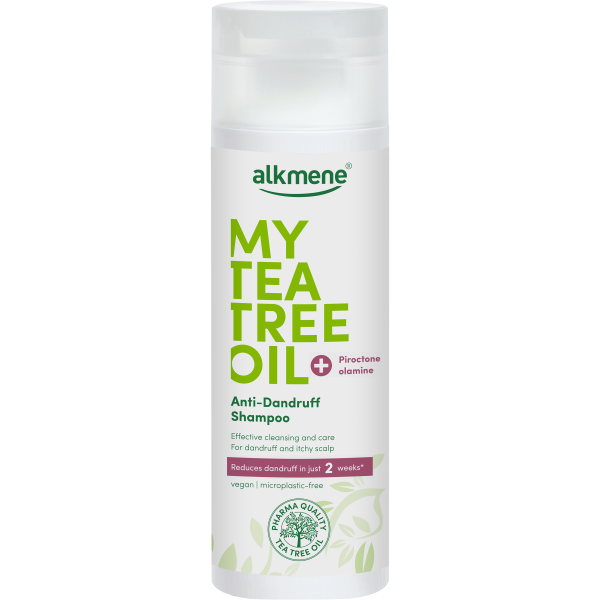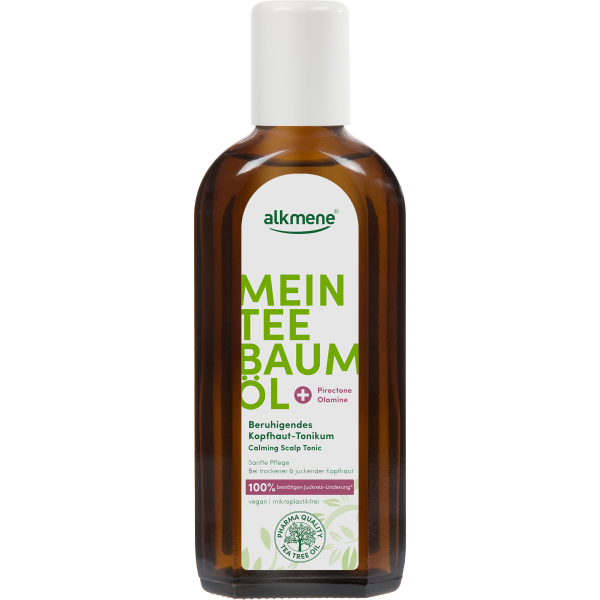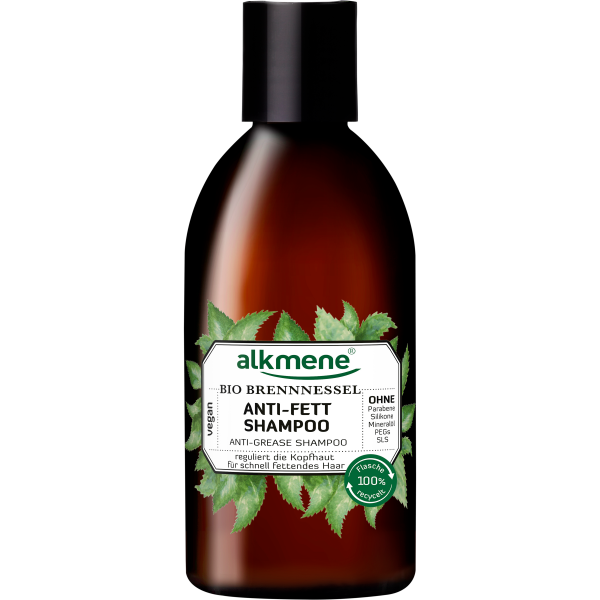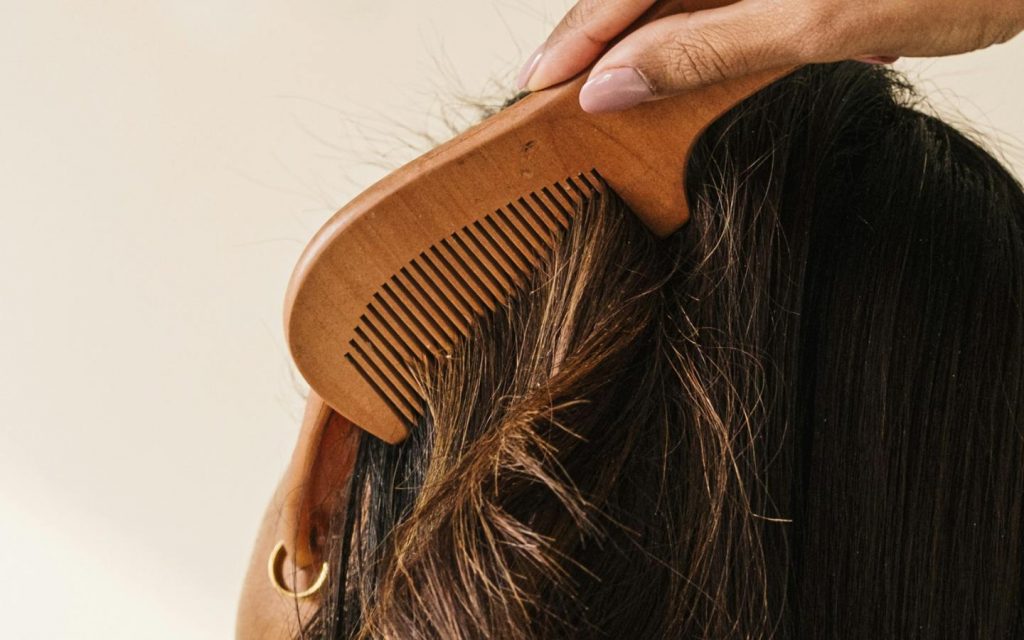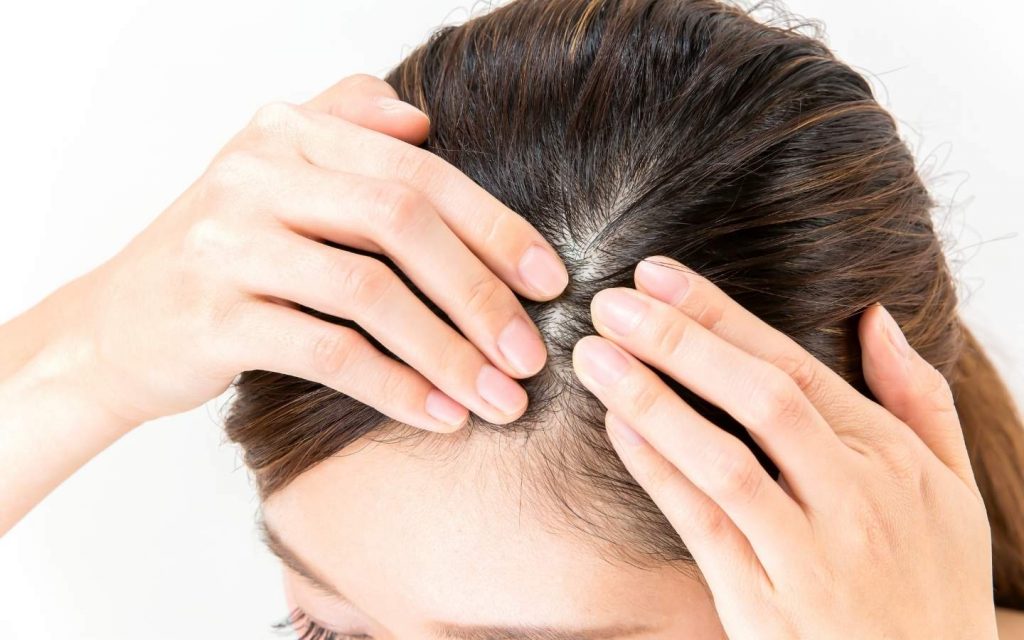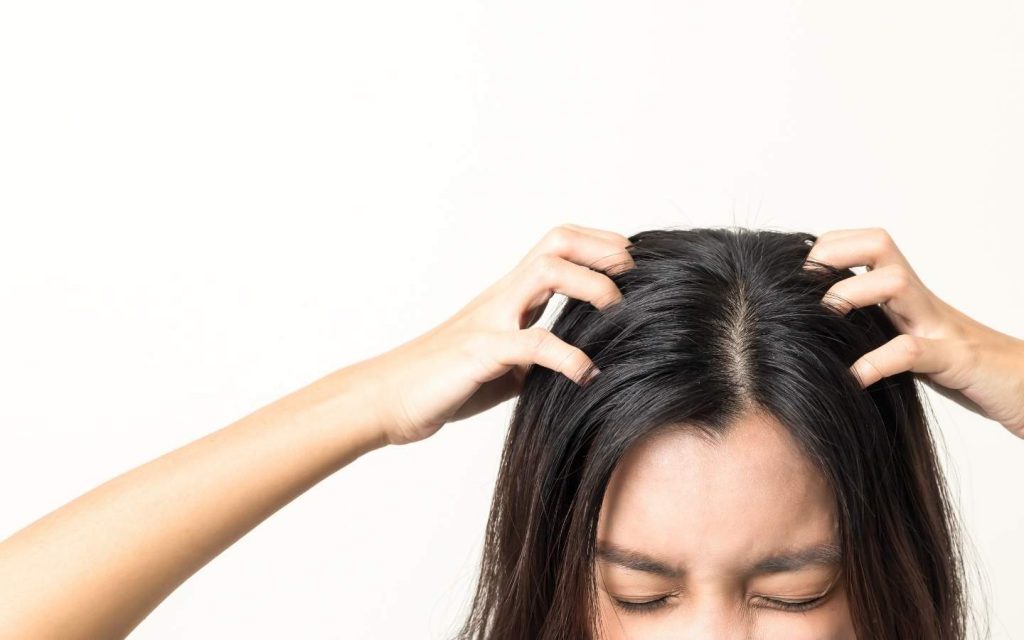
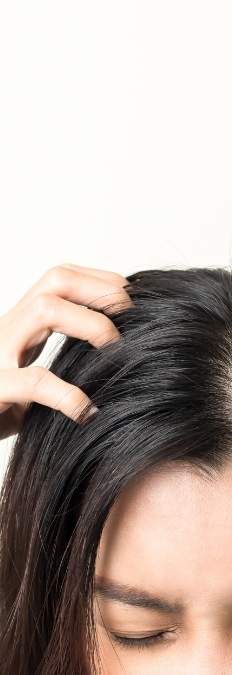
Our scalp is the basis for healthy and shiny hair. However, it can happen that this itches and tingles. Itchy scalp often occurs as a side effect of dry scalp and can therefore have various causes. Below you will learn more about the reasons for this and how you can treat the problem sustainably.
Typical symptoms of itchy scalp due to skin dryness
- Frequent scratching of the head.
- White flakes or yellow dandruff on your scalp and hair.
- Red, flaky, silvery patches on your scalp.
If you suffer from this symptom, we recommend that you see a dermatologist.
If you want to learn more about dandruff, you might be interested in our article “Dandruff – Cosmetic Problem or Skin Disease?”.
Reasons for itchy scalp
The reason for itchy scalp is usually a disturbance of the natural skin protective barrier. This means that the skin barrier is no longer stable and becomes permeable. As a result, the skin loses too much moisture and begins to dry out. An unpleasant skin tightness and severe itching can result. But it is not only the drying out that can lead to an unpleasant itching. Harmful substances that penetrate due to the damaged skin barrier can also trigger small inflammations on the scalp. In this case, a reddened and itchy scalp is also the result.
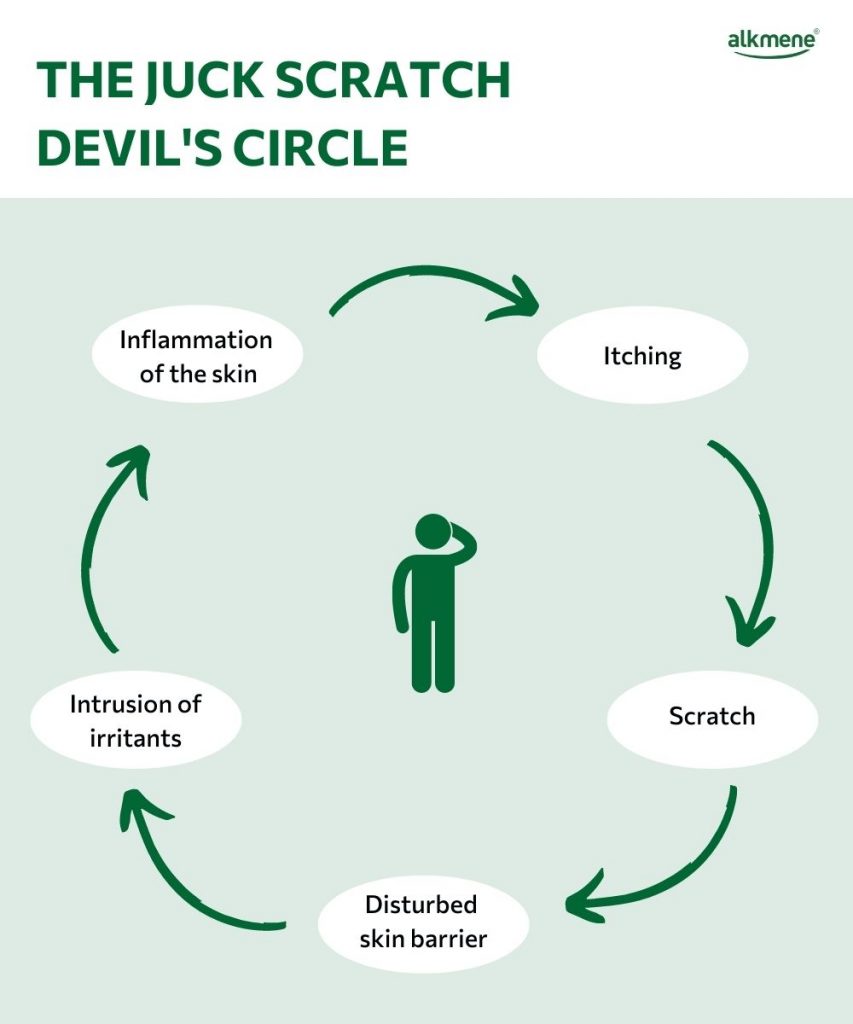
Treatment of itchy scalp
With the right care for dry and itchy scalp, symptoms can be relieved quickly and effectively. Use suitable care products to do something good for your scalp (e.g. our MY TEA TREE OIL Soothing Scalp Tonic for dry and itchy scalp). In general, when treating dry and itchy scalp, the depots of natural moisturizing factors should be replenished. Products with allantoin, for example, are suitable for this purpose, as this active ingredient has a soothing, moisturizing and protective effect. In addition, we have summarized 3 simple tips for you below, with which you can prevent and treat itchy scalp.
1. do not wash your hair too often
Give your scalp a break and don’t wash your hair every day if possible. Washing too often will degrease your scalp, which can lead to dryness and itching.
2. take care of your scalp gently
Use mild shampoos with ingredients that are tailored to the needs of itchy scalps. MY TEA TREE OIL Anti Dandruff Shampoo is ideal for this purpose. The effective formula with the unique active combination of tea tree oil and piroctone olamine soothes itching, demonstrably reduces dandruff and prevents its reformation.
3. avoid heat and head coverings
Avoid regular heat on your scalp. Try to blow dry your hair as infrequently as possible and prefer to let it air dry. Also, be careful not to wear headgear made of wool. The reason for this is that wool draws moisture from the skin, which can eventually lead to an unpleasant itchiness on your skin. Instead, use a combination of earmuffs and a hood to protect your head from the cold.
If your scalp is oozing or sore due to itching, it is also recommended to consult a dermatologist.
![]()
